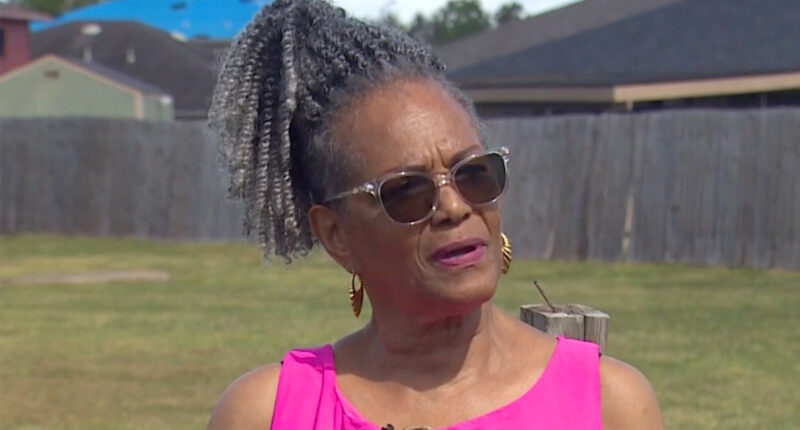A homeowner in Texas is facing a hefty bill to replace her fence that was destroyed by a hurricane. The homeowner has been a part of the homeowners association (HOA) for two decades, but the HOA unexpectedly left her to deal with the aftermath on her own.
Pauletta Aldridge’s HOA has replaced several fences over the decades, but when she needed help this summer, all she got was excuses.



Since Aldridge moved into her Houston home, she’s lived through massive hurricanes like Ike and Harvey.
Both storms left the gates surrounding her property broken and battered, but she always knew her HOA would be there to help.
This is because one of her gates divides her lawn with a public park that the neighborhood shares, so everyone benefits from the repairs.
Aldridge said all it took was 72 hours for the fence to be completely replaced.
In July, Hurricane Beryl blew through Texas and once again destroyed her gates.
Aldridge contacted her HOA for help with the repairs and was shocked when they threw the request back in her face.
“They told me that they no longer want to have that expense,” she told CBS affiliate KHOU in September.
“It’s your responsibility. We don’t want it. We won’t maintain it any longer.”
Now, Aldridge has been stuck with a massive fee and is furious over the lack of warning.
HOAs collect fees from homeowners so they can fund neighborhood projects.
However, the board decides the specific upkeep that the HOA funds, and the agreements can abruptly change.
Aldridge has another fence that borders her neighbor’s property, and the two are creating a plan to repair it.
For now, she’s still challenging the HOA to try and repair the fence one last time because of its lack of warning.
“Just upsets me for them to say that’s not my fence, that’s your fence now,” she said.
“But it hasn’t been my fence.”
What is an HOA?

One in five Americans live in an area with a Homeowners’ Association – or HOA. But what exactly is it that they do?
- An HOA is a homeowner’s association – an organization that aims to maintain a clean and cohesive place to live for its residents.
- Entire neighborhoods, subdivisions, condominiums, family homes, or townhouses within “a planned development” will often make up an HOA.
- They also act as a governing body for tenants, who run and fund the HOA through monthly fees.
- Their principal aims are to keep the community functioning and visually appealing and to maintain property values.
- They primarily focus on common areas of a neighborhood, such as roads, parks, and pools – but may also stipulate what residents can do with their properties, such as yards and driveways.
- Often these restrictions enforce uniformity on properties, for example, ensuring most houses look the same and all driveways are clear of weeds.
- An HOA rulebook of covenants, conditions, and restrictions (CC&R) is distributed to all residents, and an elected volunteer board of directors enforces these regulations.
- Breaking these rules can result in penalties such as fines and even litigation – as most HOAs are incorporated and subject to state law.
- HOAs are often the subject of controversy, with some members feeling that the rules are too punitive and restricting, or that the leadership has too much power.
- But others like that HOAs give communities the power of self-governance, and can ensure a degree of harmony between residents.
MORE HOA NEWS
Dealing with a disagreement with an HOA can be challenging, but it’s important to approach the situation calmly and methodically.
Anyone who wishes to change a rule can request it from the board and hold a meeting to present their case.
You can also organize with neighbors to rally against the board and elect new members who better represent your interests.
If all else fails, you may need to consult with a lawyer who specializes in HOA or property matters.
They can provide legal advice and help you understand your rights and options.
The HOA drama comes after a man got a weird email from his board after he had a quiet birthday party.

















